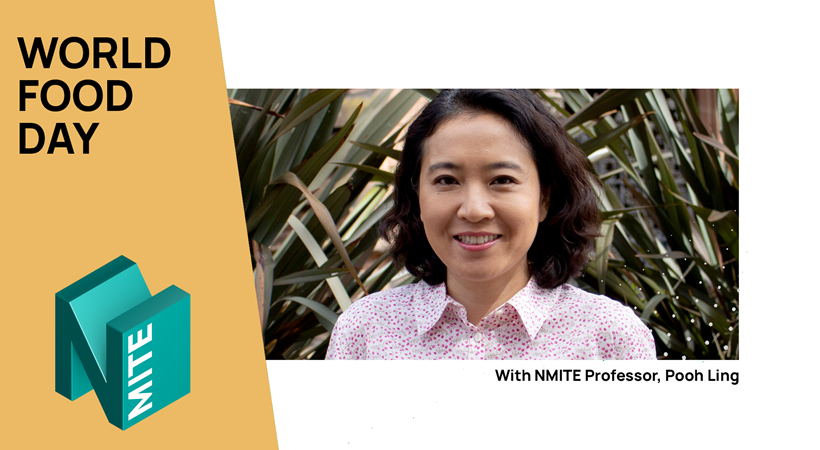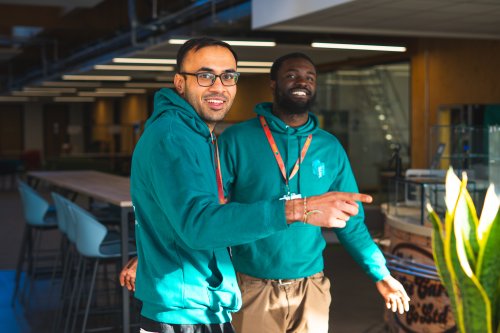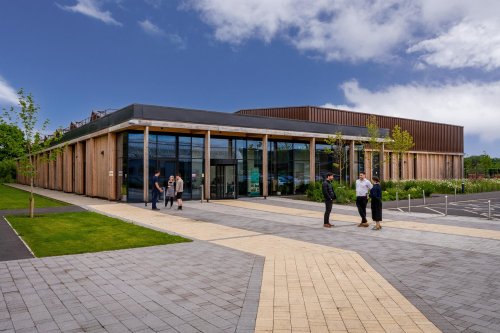It’s World Food Day, and NMITE Professor, Pooh Ling, has given us the hard-hitting facts on food waste, world hunger, and intensive farming, and why we must work together to engineer a solution to one of the world’s biggest ongoing issues. Our actions are our future.
“Let’s talk food. Today, over 2 billion people do not have access to regular, safe, nutritious and sufficient food. Around 135 million people across 55 countries still experience hunger and urgently require food, nutrition and livelihoods support. The Covid-19 pandemic has only aggravated this issue further, and with the global population expected to reach 10 billion by 2050, the demand for food will become significantly greater.
However, around 14% of the food produced for consumption is lost each year globally, and that’s before reaching the wholesale market. Even more food is wasted by retailers and by consumers.
In the UK, the estimated annual food waste is worth more than £19 billion. This equates to more than 25 million tonnes of greenhouse gas (GHG) emissions. Over 85% (by weight) of this wasted food arises in households and in food manufacture.
While millions of people are hungry, in contrast, poor diets and sedentary lifestyles have caused soaring obesity rates, in both developed countries and low-income countries where hunger and obesity often coexist. The impact of malnutrition and health is estimated to cost USD 3.5 trillion per year to the global economy.
Intensified food production through monocropping, industrial farming techniques that encourage tillage and use of powerful new chemicals, combined with climate change, is causing rapid biodiversity loss and soil degradation. Today, only nine plant species account for 66% of total food production, despite the fact that there are at least 30,000 edible plants. 90% of the soil worldwide will be degraded by 2050, rendering the land unusable for conventional agriculture. We can’t feed the world with dead soil. We need to grow a variety of food to nourish people, nourish our soil and sustain the planet.
There is a food system gap, an uneven and inefficient food distribution network that causes food loss and waste at one side of the world, but acute hunger in other regions and outdated farming techniques that endanger ecosystems.
Today more than ever, we need to rebalance and innovate our food systems. Our future food systems need to provide affordable and healthy diets for all people, ensure decent livelihoods for food system workers, while preserving biodiversity, natural resources and undertaking challenges like climate change and pest infestation. Our future food systems need to be resilient and robust to withstand increasing volatilities.
We all have a role to play, and we can start by eating more healthy and diverse food. When we choose to eat diverse foods, we encourage a variety of foods to be produced, which is not only healthier for our bodies but also for our soils and environment. A healthy and diverse diet favours biodiversity.
When possible, we should choose local and seasonal produce. Aim to support your local food heroes by buying locally grown fresh food from a farmer’s market in your community. This reduces the stress of agriculture on natural resources while helping to support local economy and encouraging crop diversity. Eating seasonal food can be tastier, cheaper and more nutritious while reducing your carbon footprint and contributing to a healthy planet.
We can also do our part to reduce food waste by learning how to store uneaten food properly to be utilised another day. We can put pressure on governments, private sector businesses and decision-makers to offer healthy food options that are more affordable and accessible, provide decent employment and protection to food system workers and advocate them to share knowledge and innovative technologies to support sustainable and resilient food systems.
Farmers should have easier access to finance, training, innovation and technology to improve their livelihoods and farming practices. They should be given incentives to encourage the production of nutritious and diverse foods. They should be offered training in sustainable farming practices, that offer alternatives to massive mono-crop operations that require them to pay an insane amount of money for chemicals. Diversifying the crops by harnessing the atmosphere’s natural resources like nitrogen and carbon will produce better food, maintain healthier soils, increase water retention, reduce GHG emission, increase the yield and even help farmers to make more money.
New technologies can promise revolutionary changes for small farmers. This could mean satellite imaging, remote sensing, mobile apps with AI technologies for better prediction models and improved data analysis. They can help to optimize food chains, improve access to nutritious foods, reduce food loss and waste, provide accurate weather forecasting, prepare farmers for natural disasters, fight against pests and diseases, and help farmers to make better decisions.
We need everyone. Activists, scientists, engineers, farmers and politicians must band together in a global movement to create resilient sustainable food systems that could balance our climate, restore biodiversity and feed the world.
Together, we can grow, nourish, and sustain our world.”
Share







